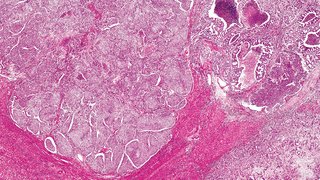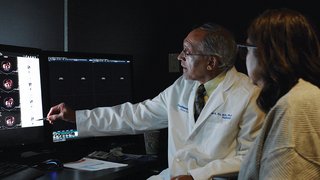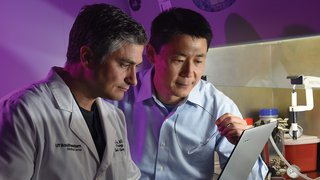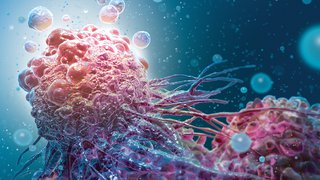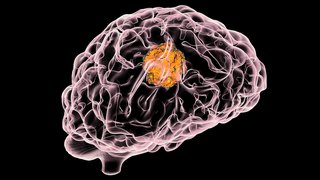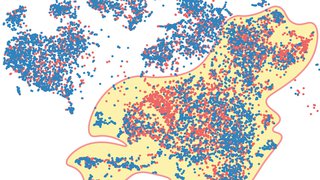Four Prominent Research Projects with Therapeutic Implications Take Shape
February 1, 2022
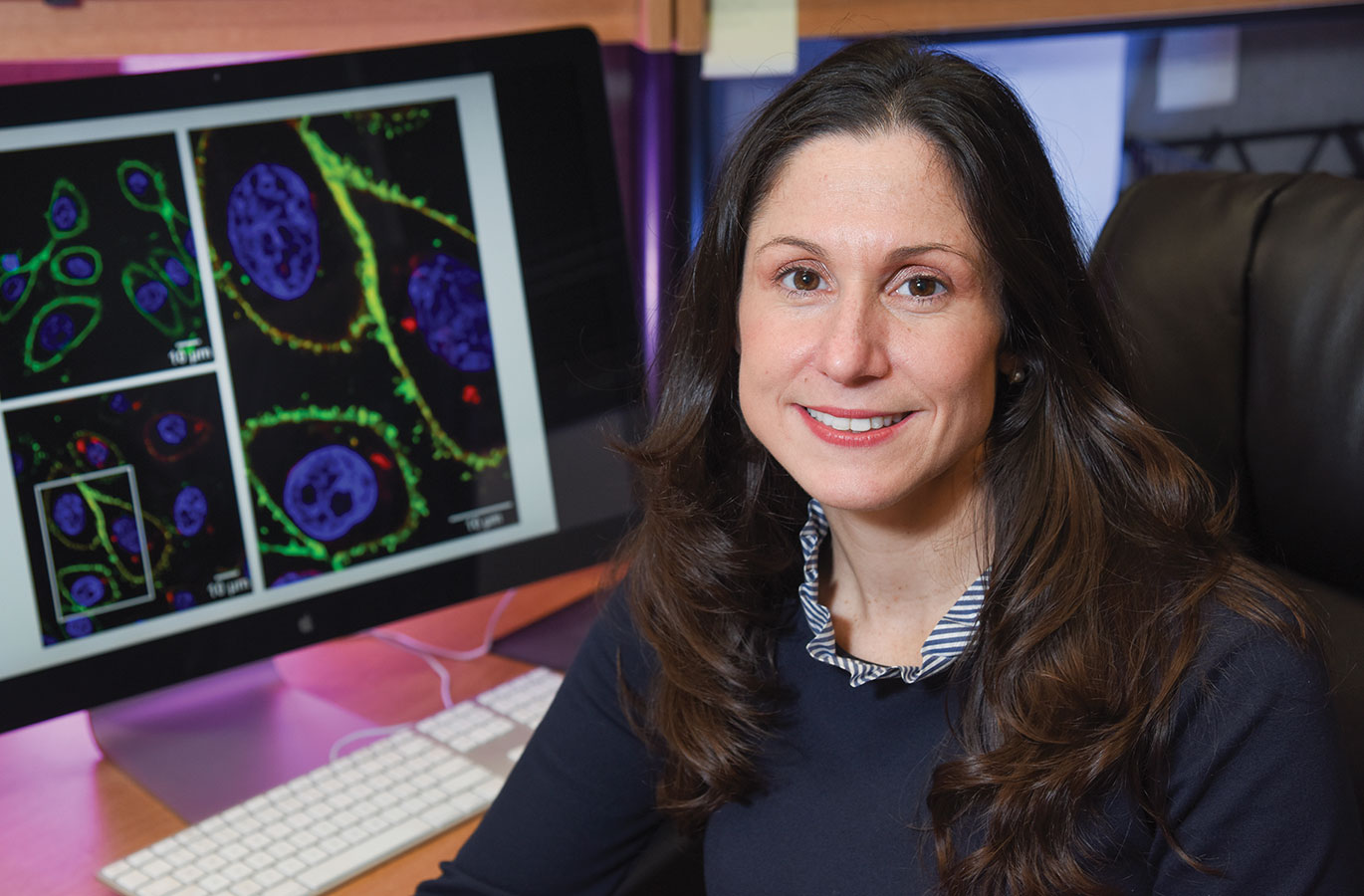
From molecular biology to groundbreaking therapeutics, Simmons researchers are investigating the future of cancer care.
UT Southwestern’s Simmons Cancer Center is home to many exciting translational cancer research programs in the areas of cancer immunology, cancer prevention and control, cell and molecular biology, and developmental therapeutics. The bench-to-bedside focus of our independent research programs has brought promise to patients and families in the Dallas-Fort Worth area. In the past two years, teams of researchers have contributed to major breakthroughs with important therapeutic implications.
Simmons Cancer Center’s research programs have received important funding awards from the National Institutes of Health, the American Cancer Society, the V Foundation, and other prestigious sources. With interest increasing in translational cancer research, we anticipate the significance of our work will grow in the years to come. “The translation of basic science research to the clinical setting is a key part of UT Southwestern’s mission,” says Melanie Cobb, Ph.D., Professor of Pharmacology and Associate Director of Basic Research at Simmons Cancer Center. “Our teams are pioneering advances in every major area of focus for Simmons, and as we look to the future, we hope to influence positive outcomes across our entire catchment area.”
Simmons Cancer Center’s research programs have received important funding awards from the National Institutes of Health, the American Cancer Society, the V Foundation, and other prestigious sources.
Here is a snapshot of just some of the leading-edge science coming out of our laboratories.
Unlocking Tumor Initiation and Progression
Proper metabolism is necessary for virtually every basic biological process. Improper metabolism can lead to several serious diseases, including certain types of cancer. Ralph DeBerardinis, M.D., Ph.D., a Professor of Pediatrics at Children's Medical Center Research Institute at UT Southwestern (CRI) who also serves as Chief of Pediatric Genetics and Metabolism at UT Southwestern, where his team is investigating metabolic disorders – how they comprise tissue function, methods to monitor metabolism, and how to treat and restore normal metabolism to improve patient outcomes.
His main research interest is in understanding how oncogenic control of metabolism supports tumor initiation and progression. A recent review by Dr. DeBerardinis and his colleagues discussed emerging concepts surrounding metabolic reprogramming in cancer.1
elF5B Overexpression Regulates Induction of PD-L1 in Lung Cancer
A report published last year in Nature Cancer established the relationship between eIF5B, a translation initiation factor, and the integrated stress response-dependent translation of PD-L1 in lung cancer. Using CRISPR-based screening, researchers from the Department of Molecular Biology have identified regulators of PD-L1 in human lung cancer cells, “revealing potent induction of PD-L1 upon disruption of heme biosynthesis.” Unexpectedly, the researchers discovered that impairment of heme production activates the integrated stress response, sanctioning bypass of inhibitory upstream open reading frames, resulting in improved PD-L1 translation and suppression of anti-tumor immunity.2
Kathryn O’Donnell, Ph.D., Associate Professor of Molecular Biology, and her team are pioneering translational cancer research across multiple domains. She is the senior author on the study. Shruthy Suresh, Ph.D., a postdoctoral fellow at Memorial Sloan Kettering Cancer Center and former doctoral student at UT Southwestern, is first author.
Because eIF5B is commonly upregulated in patients with lung cancer and is associated with poor prognosis, these findings reveal an unsuspected mechanism of immune checkpoint activation in lung cancer with important therapeutic implications.
Researchers have previously associated the integrated stress response pathway to increased translation of oncogenic transcripts and PD-L1 in skin squamous cell carcinoma and liver cancer, respectively, but the impact of this pathway on immune checkpoint regulation and immune suppression in lung cancer has not been previously investigated.
Understanding Mechanisms of Tumor Cell Growth
Despite the widespread use of activated gametogenic genes, collectively known as CT antigens, in various types of immunotherapy, relatively little is known about their biological relationship to spermatogenesis or malignancy. Angelique Whitehurst, Ph.D., Associate Professor of Pharmacology at UT Southwestern, is working with her team to characterize the mechanisms that permit uncontrolled growth of tumor cells, with a focus on CT antigens.
Recent research by Dr. Whitehurst and her colleagues found that CT antigens participate in diverse cellular processes in human cancer and may promote oncogenic activity or permit evasion of tumor-suppressive mechanisms in tumor cells.3
Insight into the Regulation of Key Processes and Functions of Cancer Cells
Ivan D’Orso, Ph.D., whose research specializes in understanding biological factors underlying HIV-host interplay, is an Associate Professor of Microbiology at UT Southwestern. He and his team are working to unravel the mechanisms of inducible transcriptional programs that mediate the regulation of key biological processes and organismal functions in cancer cells.
Recent research by Dr. D’Orso and his colleagues provided new insight into the tumor suppressive and anti-inflammatory mechanisms of the ARF tumor suppressor. Their findings suggest that PPM1G can act as a suitable therapeutic target in a variety of cancers stemming from ARF loss of function leading to oncogenic NF-κB activation.4




